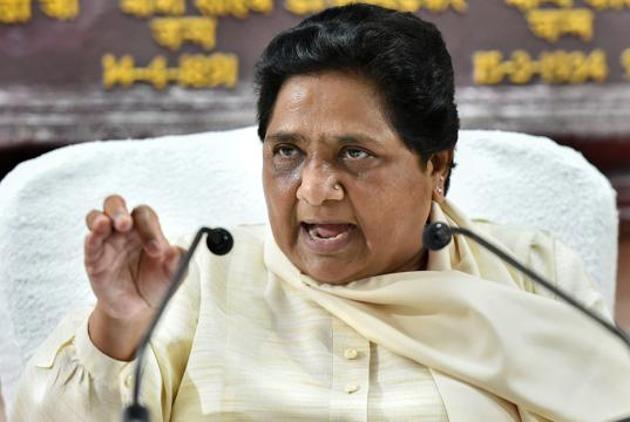Why Mayawati is a pragmatic politician
She works towards electoral alliances that appear the most respectable for her party, her voter base and herself
Bahujan Samaj Party (BSP) president Mayawati’s mind works in mysterious ways. During discussions in Uttar Pradesh’s tea shops, people term her behaviour as difficult to predict. “She often takes exactly the opposite stand to what she was saying some time ago,” is a common refrain.

That may be a popular sentiment, but my observation of UP’s political scene over the past 30 years suggests otherwise. Granted Mayawati is a tough negotiator when it comes to her party’s share in the electoral domain, but she isn’t unpredictable or abrupt in the political stands she takes. Her negotiations with a political party are guided by three factors: self-interest; the interests of the BSP; and the community’s interests. These three form the basis of her electoral strategies.
Mayawati is a pragmatic politician. She calculates her own dignified share in the political market combined with the party’s interests. She also keeps in consideration the interests of the Bahujan-Dalit communities while forming an alliance with any party. She works towards an alliance which appears the most respectable for her party, her voter base and herself.
Till a few days ago, she was perceived as a strong partner in the mahagathbandhan (grand alliance) against the Bharatiya Janata Party (BJP), but she recently said the party might go alone if she does not get a respectable share of seats. Although she said this in the context of the proposed assembly elections later this year, a few political observers feel it may indicate the direction the party will take in the 2019 Lok Sabha polls. I would tend to disagree with them. Mayawati may have gone against a BSP-Congress alliance in Madhya Pradesh and Chhattisgarh, but she may take an altogether different stand in the 2019 Parliamentary elections. In Uttar Pradesh, a divided Opposition against the BJP works in the ruling party’s favour. Mayawati realises that going alone in the Lok Sabha elections may prove disastrous for both the BSP and her.
In the context of the assembly elections in three states later this year, in which the Congress-BSP alliance could not materialise, what are the implications of Mayawati fighting solo in Madhya Pradesh and joining forces with Ajit Jogi in Chhattisgarh? It may weaken the Congress’s performance in both the states. The BSP will appear to be cutting into the votes of the Congress, engaged in a close fight with the ruling BJP in Rajasthan and Madhya Pradesh. Not only will the BSP’s presence weaken the Congress, it may also fragment the BJP’s Dalit-Bahujan supporters.
The Mayawati-Ajit Jogi alliance will emerge as a third force in Chhattisgarh and the BSP will be in a similar position in Madhya Pradesh. The BSP’s decision will make the electoral fight multi-cornered in both the states, something that doesn’t favour either the Congress or the BJP.
But to win a respectable number of seats in the Lok Sabha elections of 2019 in Uttar Pradesh, the BSP needs to be part of a grand alliance. Here the Congress has nothing to lose. So the BSP and the Samajwadi Party (SP) may form an alliance with the objective of defeating the BJP. In the context of Uttar Pradesh, the SP-BSP needs a mahagathbandhan more than the Congress. One of two scenarios may emerge. One is the formation of a grand alliance led by the SP-BSP that the Congress and the Rashtriya Lok Dal (RLD) might join. The second scenario is where the Congress-RLD combine emerges as the third force and makes the parliamentary elections multi-cornered at various places. So, I foresee that the Congress will acquire value in the 2019 elections, albeit as a minor player. Still, the small and minor third force may acquire greater importance than the two major players.
In the run-up to the 2019 elections, the SP-BSP will lead the discussion of putting together a grand alliance in Uttar Pradesh. They will have to create consensus about seat-sharing between opposition parties. The Congress may not get a major share in seats in Uttar Pradesh but may emerge as a major player in a national level grand alliance. But it all depends on the Congress’s performance in the three assembly elections.
So, Mayawati will acquire importance in the upcoming assembly elections owing to the BSP’s position as a third force which may cut the votes of both the Congress and the BJP. It may also emerge winnable in areas such as Bundelkhand, Bhind-Muraina and Chambal.
In fact, the process of forming a mahagathbandhan may begin after elections in the three state assemblies. Competing political forces will try to acquire greater political value which may help them get a respectable share of seats in a national alliance.
Badri Narayan is a professor at Govind Ballabh Pant Social Science Institute, Allahabad
The views expressed are personal






